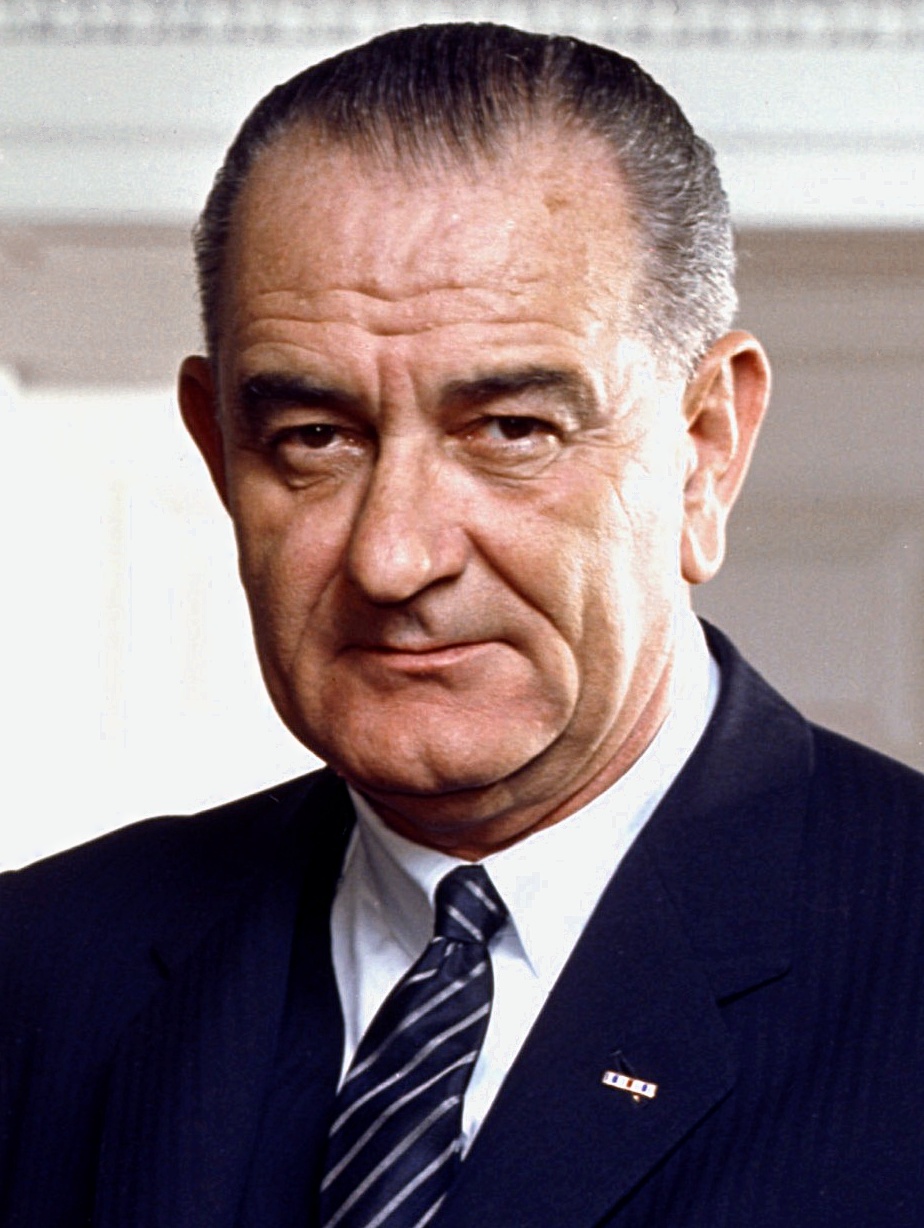gegen Ende seiner Amtszeit und vor dem Hintergrund des schleppend verlaufenden Vietnamkrieges; Der Spiegel: Ich lebe http://www.spiegel.de/spiegel/print/d-45849661.html, Heftsausgabe vom 20. Januar 1969
Zugeschrieben
Lyndon Baines Johnson Zitate und Sprüche
Lyndon Baines Johnson: Zitate auf Englisch
First official statement as President after the assassination of President John F. Kennedy, televised live from Andrews Air Force Base (22 November 1963).
1960s
1960s, Memorial Day speech (1963)
1960s, Special message to Congress on the right to vote (1965)
1960s, Special message to Congress on the right to vote (1965)
Remarks to the 10th National Legislative Conference, Building and Construction Trades Department, AFL-CIO (May 3, 1965); reported in Public Papers of the Presidents of the United States: Lyndon B. Johnson, 1965, book 1, p. 480.
1960s
1960s, Remarks on the Civil Rights Act (1968)
1960s, Statement on the Freedom of Information Act (1966)
“I do not find it easy to send the flower of our youth, our finest young men, into battle.”
(28 July 1965) http://www.presidency.ucsb.edu/ws/index.php?pid=27116.
1960s
1960s, State of the Union Address (1966)
Regarding rioting (1968), as quoted in Judgment days: Lyndon Baines Johnson, Martin Luther King, Jr., and the laws that changed America (2005), by Nick Kotz, Boston: Houghton Mifflin. p. 417.
1960s
“Eisenhower used to tell me that this place was a prison. I never felt freer.”
As quoted in "What a Real President Was Like: To Lyndon Johnson, the Great Society Meant Hope and Dignity" http://pqasb.pqarchiver.com/washingtonpost/doc/307079109.html?FMT=ABS&FMTS=ABS:FT&date=Nov+13%2C+1988&author=Moyers%2C+Bill+D&desc=What+a+Real+President+Was+Like%3B+To+Lyndon+Johnson%2C+the+Great+Society+Meant+Hope+and+Dignity, by Bill Moyers, The Washington Post (13 November 1988).
1960s, Letter to Ho Chi Minh (1967)
"Remarks Upon Signing the Civil Rights Act.," April 11, 1968. Online by Gerhard Peters and John T. Woolley, The American Presidency Project. http://www.presidency.ucsb.edu/ws/index.php?pid=28799&st=&st1=#axzz2gguIRFi1
1960s, Remarks on the Civil Rights Act (1968)
1960s, Remarks at the signing of the Immigration Bill (1965)
1960s, Special message to Congress on the right to vote (1965)
1960s, Voting Rights Act signing speech (1965)
1960s, The American Promise (1965)
1960s, Inaugural address (1965)
Said to Senator Richard Russell, Jr. (D-GA) regarding the Civil Rights Act of 1957. As quoted in Lyndon Johnson and the American Dream http://books.google.com/books?id=HS9aAAAAYAAJ (1977), by Doris Kearns Goodwin, New York: New American Library, p. 155.
Attributed
From a speech on the state of the Middle East, September 10, 1968 http://www.jewishvirtuallibrary.org/jsource/US-Israel/lbjpeace1.html
1960s
1960s, Telephone call with Senator Richard Russell (May 27, 1964)
1960s, Telephone call with Senator Richard Russell (May 27, 1964)
1960s, Inaugural address (1965)
1960s, State of the Union Address (1966)
There is no other way.
1960s, Memorial Day speech (1963)
1960s, Memorial Day speech (1963)
1960s, State of the Union Address (1966)
1960s, The American Promise (1965)
